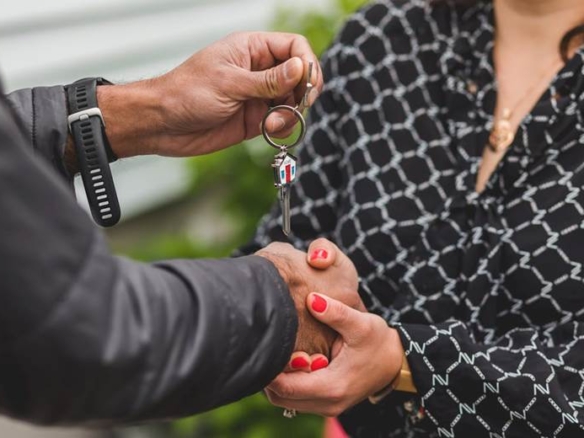The conveyancing process when buying a home is about the legal transfer of ownership from the selling party to the buyer. The process begins when an offer is accepted for a property and is concluded when the buyer receives the keys.
While it is technically possible for anyone to carry out conveyancing work, anyone who has received a mortgage to buy a home will usually find that the terms and conditions of the agreement require a legal professional to carry out the conveyancing. This means that hiring (instructing) a solicitor or conveyancer to carry out the conveyancing is the first step for most buyers.
The professional carrying out the conveyancing will create a contract which will detail their charges, any deposits required and all other aspects of the agreement. Once this has been signed and agreed upon, the conveyancer will contact the solicitor operating on behalf of the selling party to request a draft contract and all other relevant details, which is likely to include standard forms and the title of the property.
The conveyancer will study the draft contract, raising any issues with the legal team working on behalf of the seller. Your conveyancer should inform you of any potential issues or things to be aware of but you have a responsibility to review the contract too.
There are a number of searches and checks to be carried out by a conveyancer
A conveyancer will also carry out a search of the property to make sure that there are no issues that could impact on the purchase or the property. For instance, if there were any plans to construct a new road through the garden of the home or any issues about leaks or waste in the area, these would be listed with the local authority. This search cost money, which will be added to your fee and the process can take up to 6 weeks depending on the efficiency of the local authority. The conveyancer will also check with Land Registry to ensure that the seller has legal entitlement to sell the property.
Other checks carried out by the conveyancer can include:
· Checking for flood risks
· Verifying the water authority and checking for any issues
· Environmental searches
· Optional or additional searches based on your location, for example, mining searches or determining if the property is in a noise abatement zone
The conveyancer or solicitor will also review your mortgage to ensure that you are aware of the conditions but this is an area that you need to be proactive in as well. At this stage of the process, there is also likely to be a mortgage valuation carried out. This is undertaken or arranged by the mortgage provider but you will have to pay for it. You may decide that additional surveys should be carried out at this stage, providing you with a greater level of insight into the condition of your property. There is also a need to obtain building insurance before contracts are exchanged.
Your conveyancer will provide you with contracts to sign and exchange but they should ensure that:
· All of their enquiries have been satisfied and completed
· The fixtures and fittings included with the property are as expected
· A completion date is in place
The conveyancer should then agree on a time and date to exchange contracts and your professional will do this for you. Once these contracts have been exchanged, the contract is legally binding.
At this stage, the following things should happen:
· Your conveyancer should lodge an interest that means that property deeds are frozen for 30 working days. This provide you with the opportunity to provide funds for the property and contact the Land Registry to obtain the deeds
· The seller should move out of the property
· You should press ahead with arranging and organising moving home
· Your conveyancer should provide you with a breakdown of what you have to pay and when this needs to be cleared with your solicitors bank account (usually a minimum of one day before the completion of the purchase)
Once you receive the keys, the purchase is complete but there are still some steps involved with the conveyancing process, including:
· Stamp duty being paid, which your conveyancer should take care of
· You should receive legal documents
· A copy of the title deeds should be provided to the mortgage lender and they will retain these deeds until the mortgage has been paid off
· The conveyancer should provide you with a bill for their services, which you should pay
At this point, you should collate all paperwork for the property purchase and store them in a suitable location.
Article source: Inhous




